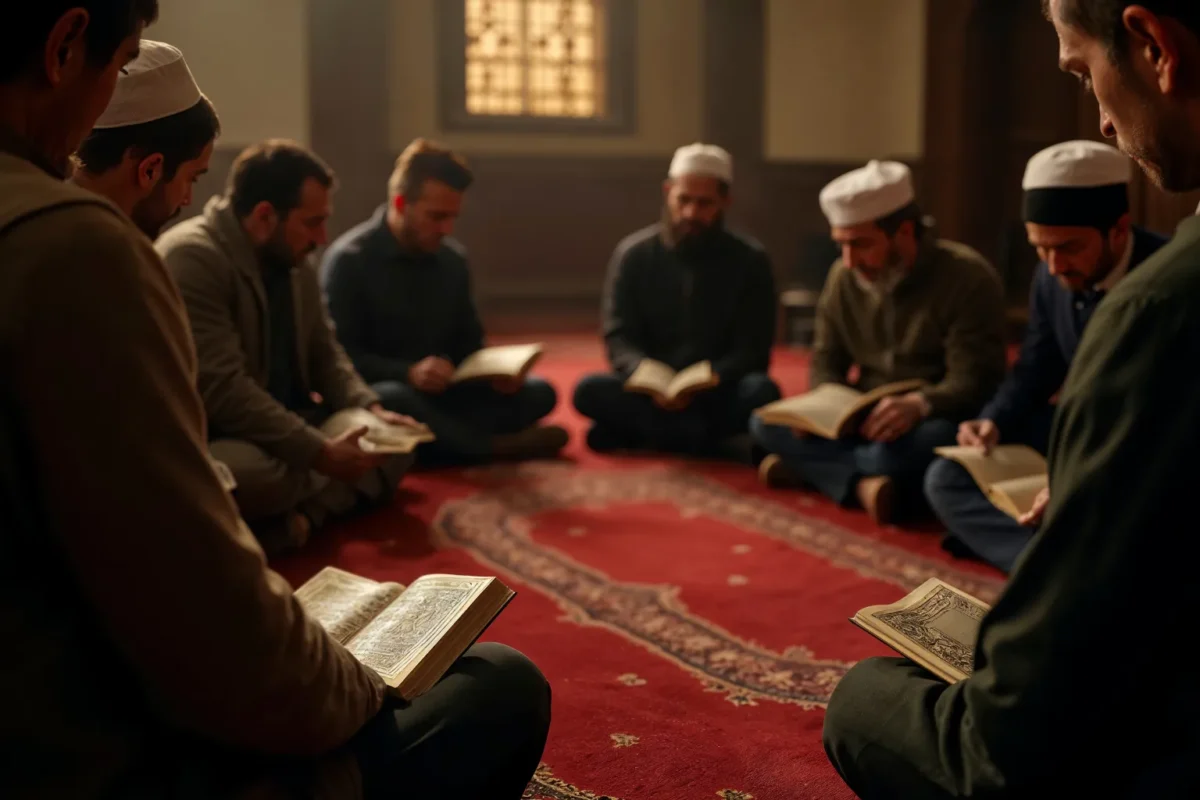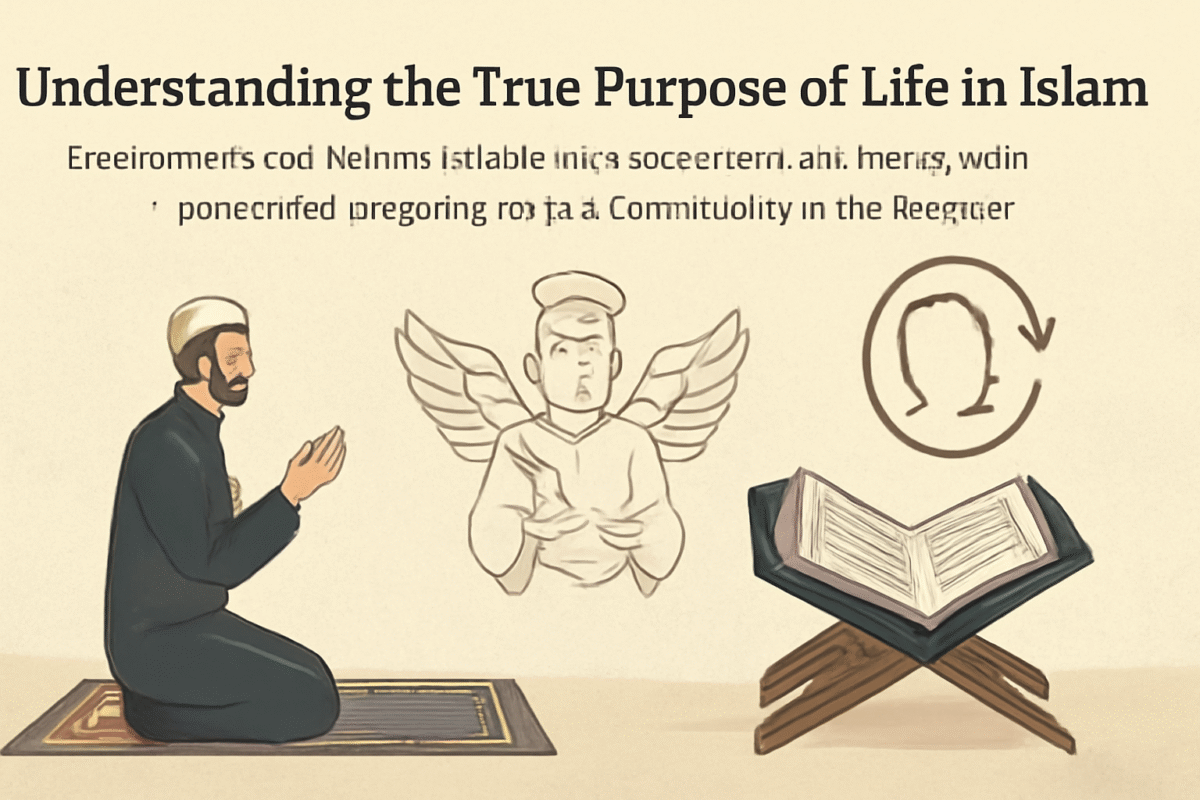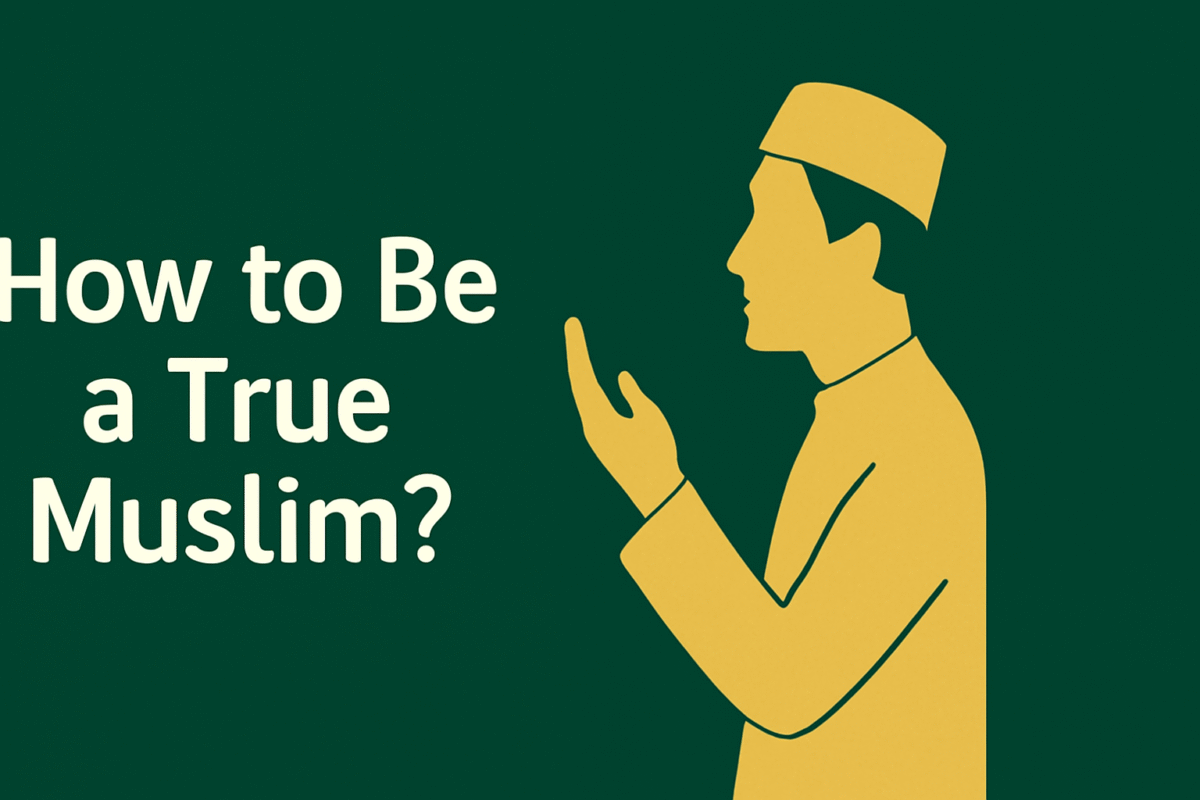Islam is not just a religion but a complete code of life, which guides man in every aspect of life. Human rights and fundamental rights have a central place in Islamic teachings. Principles like love, justice, self-respect, freedom, and equality tell us that every human being is worthy of respect, not only Muslims but also non-Muslims. The aesthetic message of Islam is that “all humans are the children of Adam, and Adam was created from dust.”
The reflection of such teachings is seen in human rights and fundamental rights according to Islamic teachings.
This question is related to daily life… Are we giving human beings their rights?
Just think, when you despise a beggar, rebuke a servant, or despise someone who has a different opinion, are you giving them their basic human right?
In today’s world, where every other person talks about their “rights”, we forget that, according to Islamic teachings, human rights and fundamental rights are not just verbal claims but practical responsibilities. You can also read the purpose of life in Islam here.
Every day, we meet countless people: mothers, fathers, wives, husbands, employees, neighbors, the poor, orphans, and the elderly. Do we know the rights of all of them? Are we giving them the status that Islam has assigned to them?
According to Islamic teachings, human rights and fundamental rights are not just a matter for a court or parliament, but the cry of the conscience of every believer.
A Heart-Touching Incident: Hazrat Umar (RA) and the Example of Human Equality
The Caliphate of Hazrat Umar bin Al-Khattab (RA) is a shining example of justice, fairness, and human rights and fundamental rights according to Islamic teachings. Once, a man wronged a Coptic slave. The slave came to Medina and complained to Hazrat Umar (RA). He immediately summoned the tyrant, whipped the Coptic slave, and said:
“Since when have you enslaved people, even though their mothers gave birth to them free?”
(Musnad Ahmad)
In this incident, Hazrat Umar (RA) proved as a ruler that every human being is equal in Islam. There is no one small or big, black or white.
This is the point that we have forgotten. We make decisions based on outward status, wealth, or caste, while according to Islamic teachings, human rights and fundamental rights require that every human being be respected, regardless of what class they belong to.
Summary:
This incident reminds us that if a caliph bows down to a slave at the time, then with what arrogance are we violating the rights of others?
Do we treat our subordinates, neighbors, or employees the way Hazrat Umar (RA) taught?
According to Islamic teachings, adhering to human rights and fundamental rights is not just an obligation, but also part of our faith.
7 easy ways to adopt these rights
(To bring human rights and fundamental rights to life according to Islamic teachings)
1. Spread greetings:
The Prophet (peace and blessings of Allaah be upon him) said: “Spread greetings, feed people, maintain ties of kinship, and pray at night while people are sleeping, and you will enter Paradise in peace.” (Tirmidhi)
2. Speak to every person with respect:
In Islam, all people are equal; there is no superiority based on caste, color, or language.
(Al-Quran, Al-Hujurat: 13)
3. Take care of the rights of orphans and widows:
The Prophet (peace and blessings of Allaah be upon him) said: “I and the one who supports an orphan will be like that in Paradise.” (Bukhari)
4. Respect the poor, do not look down on them:
The Quran says: “And do not rebuke the poor.” (Al-Dhuha:10)
5. Treat employees with kindness:
The Prophet (ﷺ) said: “Your servants are your brothers.” (Bukhari)
6. Uphold justice and fairness in all circumstances:
“Allah loves those who act justly.” (Al-Ma’idah:42)
7. Avoid backbiting, gossip, and suspicion:
“Would any of you like to eat the flesh of his dead brother?” (Al-Hujurat:12)
If we only follow these seven things, then human rights and fundamental rights according to Islamic teachings will become a part of our lives.
Conclusion
Islam’s approach to human dignity, respect, and fundamental freedoms is unparalleled, offering a deeply compassionate view of humanity. It is not merely a collection of laws but a heart-touching light that guides us to true humanity. These teachings transcend legal frameworks, urging believers to embody respect and kindness in every interaction. The true essence of faith is reflected not only in worship but in our treatment of others, reinforcing that our actions toward fellow human beings define the completeness of our religious practice.
To truly live out Islamic teachings, we must offer love, respect, and compassion to all. Simple acts like a smile, preventing harm, or paying someone’s bill reflect our faith and the values taught by the Quran and Sunnah.
Comprehensive Prayer
O Allah! Grant us the ability to understand and practice human rights and fundamental rights according to Islamic teachings, and fill our hearts with justice, mercy, and love. Amen.
FAQs
Are non-Muslims also granted rights in Islam?
Yes, Islamic teachings emphasize the respect and dignity of all humans, including non-Muslims. The Quran and Hadith repeatedly stress that no human being should be mistreated, despised, or discriminated against, and that justice and compassion must extend to everyone in society.
How did Hazrat Umar (RA) uphold human rights during his caliphate?
Hazrat Umar (RA) is known for his strong commitment to justice and equality. A famous incident shows that when a Coptic slave was wronged, Hazrat Umar ensured justice was served regardless of the social status of those involved. His response, “Since when have you enslaved people, even though their mothers gave birth to them free?” exemplifies the Islamic view that all humans are equal.
How can I apply Islamic human rights in daily life?
You can begin by following simple yet powerful practices: greet others kindly, speak with respect, support orphans and widows, treat employees fairly, avoid gossip, and uphold justice in every matter. Islam teaches that these actions are not just good manners; they are acts of faith.







